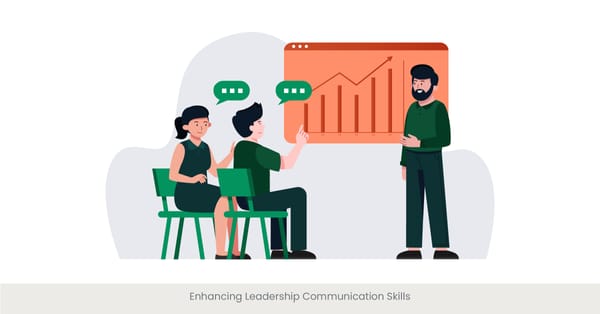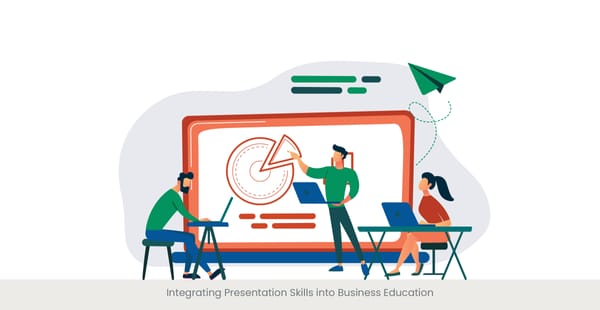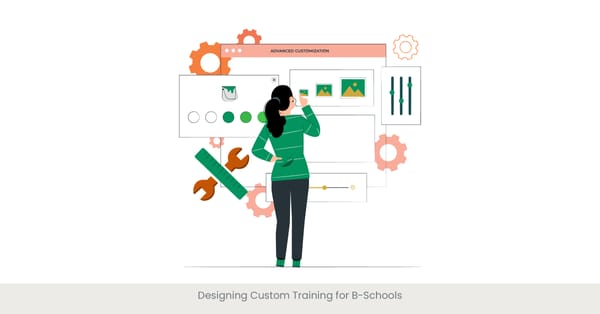
Identifying Areas for Continuous Improvement in Presentation Skills
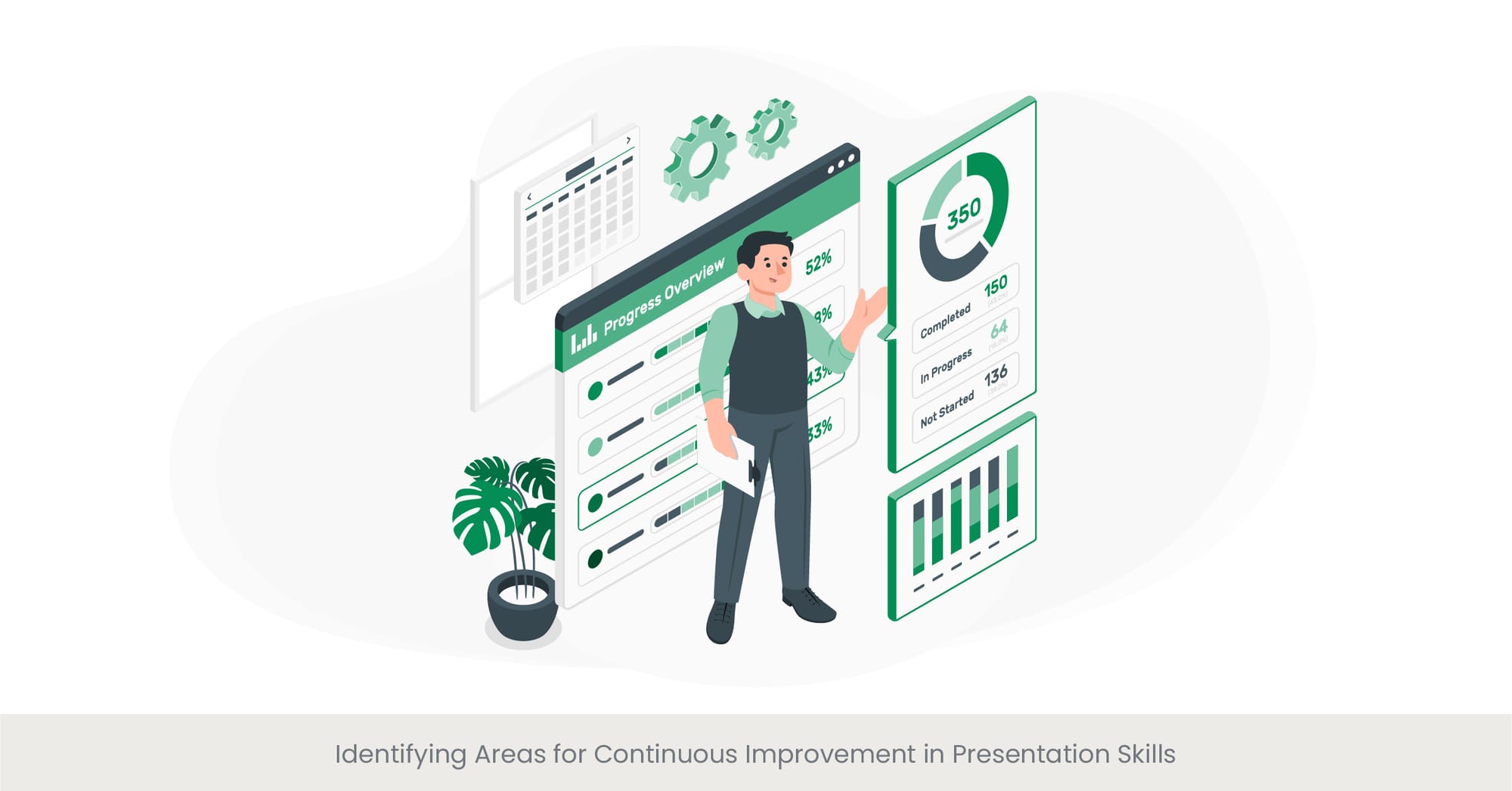
Introduction: The Foundation of Excellence
Improving presentation skills is a critical step in professional development, essential for anyone looking to enhance their communicative effectiveness. This process begins with identifying specific areas where one can improve. Whether you're a seasoned speaker or a novice presenter, recognizing these areas is key to developing a targeted approach that enhances your ability to present information and to engage and persuade your audience effectively.
Background: Understanding the Skills Spectrum
Presentation skills encompass a wide range of abilities, from verbal and nonverbal communication to the use of visual aids and body language. Each element plays a vital role in the success of a presentation. For instance, effective presentation training can help individuals understand the importance of body language, which accounts for a significant portion of the communicative impact. Similarly, mastering the use of visual aids can greatly enhance the clarity and retention of the presented message.
Real-World Application: Continuous Learning and Adaptation
In the world of professional presentations, the ability to continually adapt and refine skills is crucial. Consider a business executive who undertakes regular training to improve their delivery techniques or a teacher who seeks feedback to make their instructional presentations more engaging. These real-world examples highlight the importance of ongoing improvement and adaptation in maintaining relevance and effectiveness in one's professional role.
References and External Sources
To validate the importance of continuously improving presentation skills, several studies and expert opinions highlight the significant returns on investing in presentation skills training programs. For example, a survey by Toastmasters International suggests that individuals who engaged in regular presentation skills enhancement reported a 50% improvement in their public speaking confidence. Another study in the "Journal of Effective Management" found that professionals who focused on developing their presentation skills saw a 40% increase in their promotional opportunities within their organizations.
Seeking Opportunities for Skill Enhancement and Growth

Introduction: Embracing Growth Opportunities
In the quest for professional excellence, actively seeking opportunities for skill enhancement is crucial. This proactive approach not only broadens one's knowledge base but also sharpens presentation skills through diverse experiences. Whether through formal training sessions, mentorship, or practical experiences, each opportunity contributes significantly to personal and professional growth.
Background: The Landscape of Learning Opportunities
The landscape of learning opportunities for enhancing presentation skills is vast and varied. It includes structured presentation skills training programs, workshops led by industry experts, and seminars that focus on niche aspects of presenting like mastering PowerPoint or effectively using humor. Each of these platforms offers unique benefits, allowing individuals to develop a comprehensive skill set that encompasses both the art and science of effective presentations.
Real-World Application: Harnessing Diverse Platforms
Professionals across various fields harness these opportunities to elevate their own presentation and capabilities. For example, a marketing professional might attend a conference on the latest trends in digital presentation tools to stay ahead in their field, while a project manager might participate in a workshop on how to present complex information clearly and concisely to stakeholders. These real-life applications demonstrate how seeking out diverse learning environments can lead to substantial skill enhancement.
References and External Sources
Research underscores the value of continuous learning. According to a report by the Professional Development Consortium, participants in ongoing professional development programs were 15% more likely to achieve leadership positions. The Harvard Business Review also highlights that individuals who dedicate time to learning new presentation techniques can see up to a 20% increase in job performance and satisfaction.
Engaging in Lifelong Learning Through Workshops and Courses
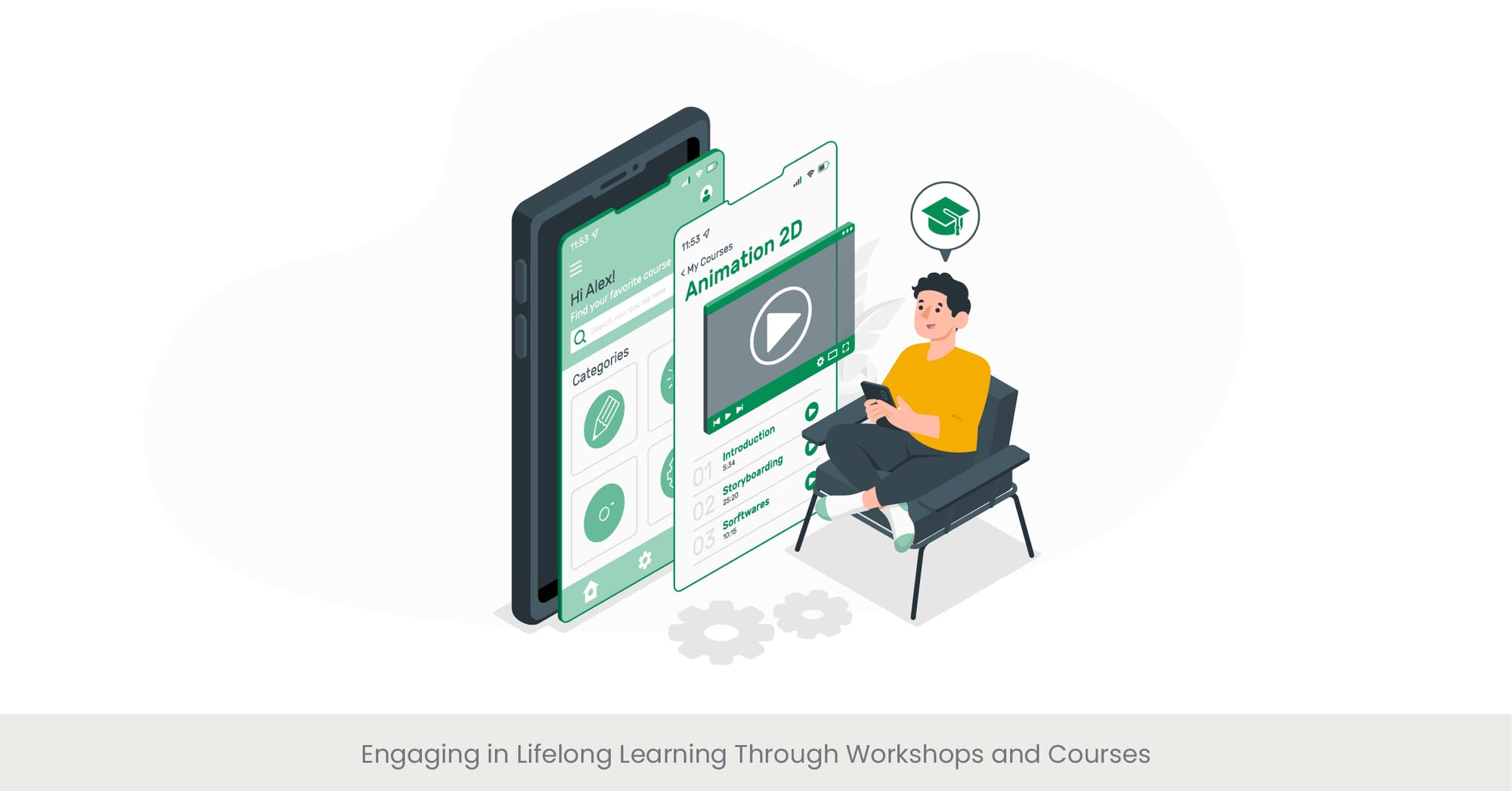
Introduction: The Journey of Lifelong Learning
Lifelong learning is an enriching process that fosters continuous personal and professional development. For professionals keen on refining their presentation skills, engaging in workshops and courses is a vital strategy. These educational settings provide a structured approach to learning, offering both foundational knowledge and advanced techniques in presentation skills.
Background: The Role of Structured Learning
Workshops and courses in presentation skills are designed to address various levels of expertise and diverse learning needs. From introductory courses on the basics of public speaking to advanced classes on interactive presentation technology, these programs are tailored to push the boundaries of what can be achieved in personal communication and presentation mastery. These structured learning environments often incorporate practical exercises, peer reviews, and expert feedback, making them highly effective for skill development.
Real-World Application: Bridging Theory and Practice
Real-world examples abound where workshops and courses have directly impacted professionals' careers. Take, for instance, a sales manager who attended a series of advanced presentation workshops and subsequently implemented these new strategies to dramatically increase their team's sales performance. Another example is an educator who, through continuous enrollment in courses, was able to integrate innovative teaching methods into their presentations, greatly enhancing student engagement and learning outcomes.
References and External Sources
A study by the Educational Research Association found that professionals who regularly participate in workshops and courses on presentation skills improve their effectiveness and persuasiveness in speaking by up to 40%. Furthermore, a survey highlighted in the "Journal of Professional Development" reveals that ongoing participation in such educational programs correlates with higher satisfaction and progression in one's career path.
Networking with Peers and Mentors for Skill Development
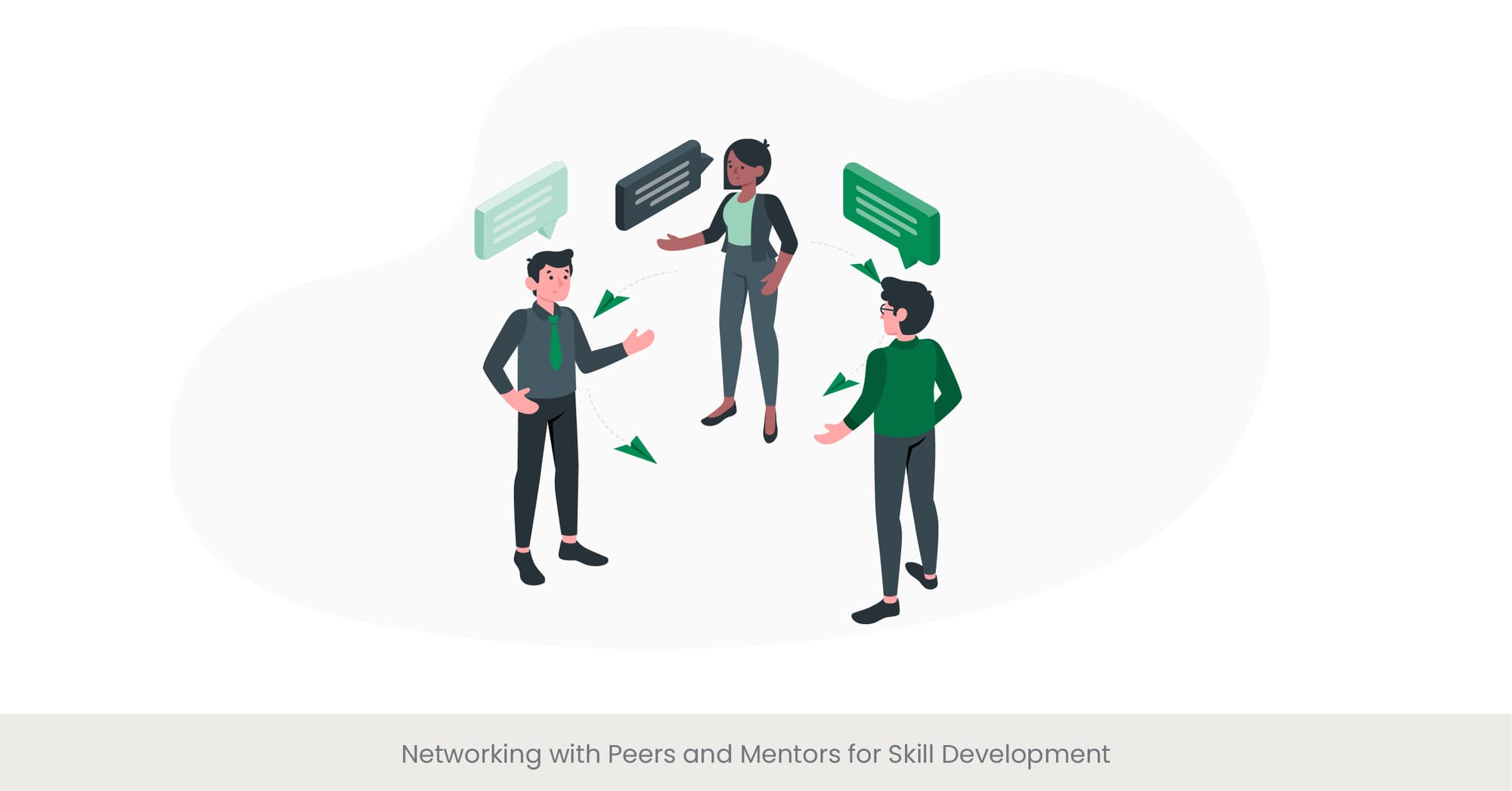
Introduction: The Power of Professional Connections
Networking is a cornerstone of professional growth, particularly when it comes to developing presentation skills. By connecting with peers and seeking mentorship from experienced presenters, individuals can gain insights and feedback that are invaluable for honing their abilities. This collaborative learning environment encourages the sharing of experiences and techniques, fostering a community of continuous improvement.
Background: The Dynamics of Mentorship and Peer Learning
Effective networking goes beyond mere acquaintance—it involves engaging with mentors who can provide guidance based on their own experiences and successes in presentation. Likewise, peer networks can act as a sounding board for new ideas and presentation styles, offering a diverse range of perspectives that can challenge and inspire improvement. Such interactions often occur in professional associations, conferences, or even within the workplace.
Real-World Application: Success Through Collaboration
The benefits of networking are evident in numerous success stories. For example, a junior analyst who regularly attended network meetups with senior executives learned the nuances of corporate presentation and significantly boosted their career trajectory. Another instance involves a professional who formed a peer review group to practice and refine presentations, which greatly improved their public speaking confidence and effectiveness.
References and External Sources
According to a report by the National Communication Association, professionals who engage in networking with a focus on skill development are 30% more likely to report job satisfaction and career advancement. Furthermore, a study in the "Journal of Business Communication" found that mentorship leads to a 25% improvement in presentation skills among mentees, highlighting the tangible benefits of such professional relationships.
Reading Books and Articles on Presentation Techniques and Trends

Introduction: Enhancing Skills Through Knowledge
In the rapidly evolving world of communication, keeping abreast of the latest presentation techniques and trends is essential. Reading extensively from books and articles dedicated to presentation skills offers professionals a competitive edge, allowing them to integrate contemporary insights and methods into their own presentations.
Background: The Impact of Scholarly and Practical Resources
The wealth of resources available in the form of books, academic journals, and industry publications provides a solid foundation for understanding the art and science of effective presentations. These resources cover a wide spectrum of topics, from traditional rhetorical strategies to the latest innovations in digital presentation tools, giving readers a comprehensive overview of current and emerging trends in the field.
Real-World Application: Applying Advanced Knowledge
Professionals across various sectors utilize this knowledge to elevate their presentations. For example, a project manager might apply techniques from a recent article on persuasive communication to enhance their stakeholder presentations. Similarly, a marketing executive could incorporate strategies from a book on engaging storytelling in their product launches to captivate and convince their target audience more effectively.
References and External Sources
Research supports the benefits of continuous learning through reading. A study published in the "International Journal of Business Communication" found that professionals who regularly read industry-related books and articles improve their presentation skills by up to 33%. Additionally, insights from the "Annual Review of Applied Linguistics" emphasize that keeping up with current literature can significantly enhance one's adaptability and proficiency in delivering powerful presentations.
Attending Conferences and Seminars on Communication and Leadership
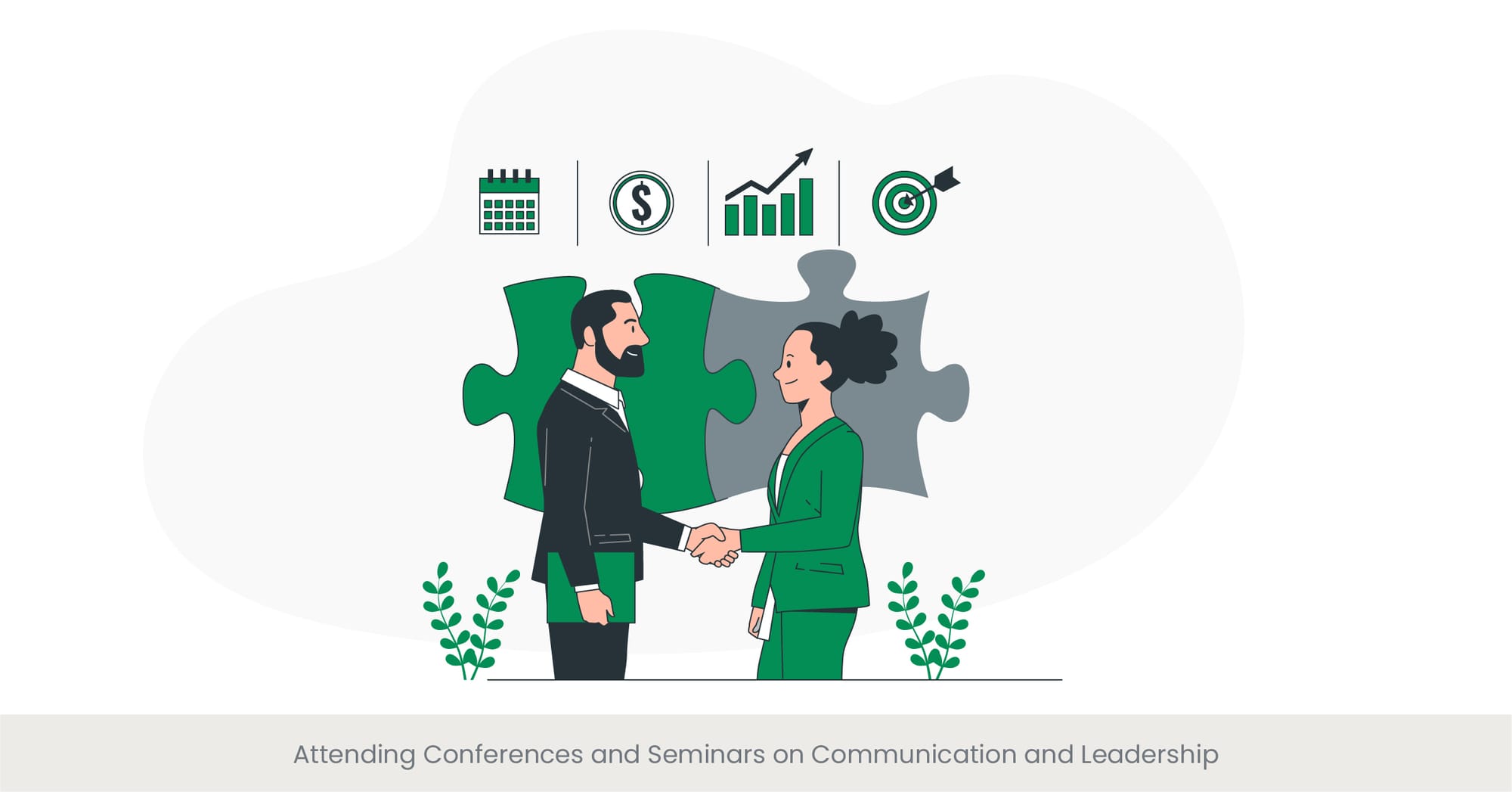
Introduction: The Value of Specialized Gatherings
Conferences and seminars play a pivotal role in professional development, especially in the realms of communication and leadership. These events offer attendees the chance to learn from leading experts, gain insights into the latest trends, and see effective communication strategies in action. For anyone looking to elevate their presentation skills, these gatherings are invaluable.
Background: Educational and Inspirational Opportunities
These conferences and seminars provide a rich tapestry of learning opportunities that extend beyond simple lectures. They often include interactive workshops, panel discussions, and keynote speeches by thought leaders in the industry. Participants have the chance to explore various aspects of communication and leadership, from learning new persuasive techniques to understanding how to lead a team effectively during presentations.
Real-World Application: Direct Benefits from Expert Knowledge
Attending these events can have a direct impact on a professional’s ability to communicate and lead. For instance, an entrepreneur who attended a seminar on leadership communication might use the learned principles to better motivate their team. Similarly, a sales manager could implement new selling techniques gleaned from a conference to improve their presentation outcomes dramatically.
References and External Sources
Studies show the effectiveness of attending such professional gatherings. According to the "Leadership Quarterly", attendees of leadership seminars often experience a 20% increase in self confidence and leadership skills, including communication abilities. Additionally, data from the "Journal of Public Affairs" indicates that professionals who frequently attend industry-specific conferences are more likely to innovate in their presentation techniques and achieve higher career satisfaction.
Participating in Webinars and Online Training Programs
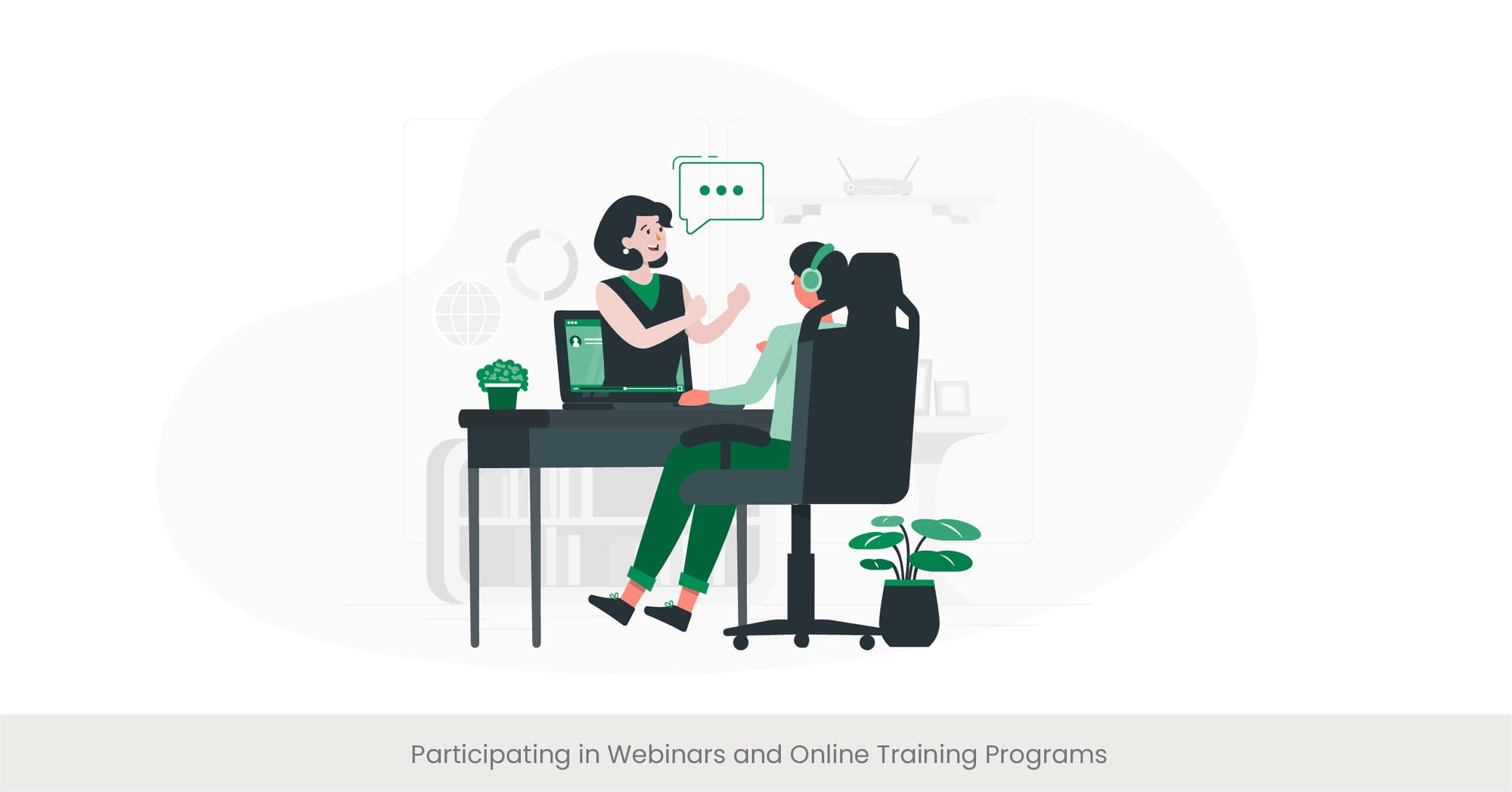
Introduction: Embracing Digital Learning Environments
In today’s digital age, webinars and online training programs have become essential tools for professional development, especially in improving presentation skills. These platforms offer the convenience of learning from anywhere in the world, providing access to a wide array of topics and expert knowledge that might otherwise be inaccessible.
Background: The Advantages of Online Learning
Online training programs and webinars are designed to cater to a diverse audience, ranging from beginners to advanced practitioners. They offer flexibility in learning pace and style, which is particularly beneficial for busy professionals. These digital courses often include interactive elements such as live Q&A sessions, practical exercises, and peer-to-peer feedback, making them a robust environment for skill enhancement.
Real-World Application: Leveraging Online Resources for Growth
Many professionals have leveraged these online resources to significantly enhance their presentation abilities. For example, a financial analyst might participate in webinars about effective data presentation to better convey complex information in an understandable way. Another instance could be a healthcare professional attending an online course on nonverbal communication to improve their patient interactions during presentations.
References and External Sources
Evidence supports the effectiveness of online learning for professional development. A study published in the "Journal of Educational Technology" found that participants in online presentation skills courses showed a 30% improvement in their ability to engage and inform audiences. Moreover, a survey by the Online Learning Consortium highlights that 70% of participants believe online training has directly improved their job performance.
Joining Professional Associations Related to Presentation Skills
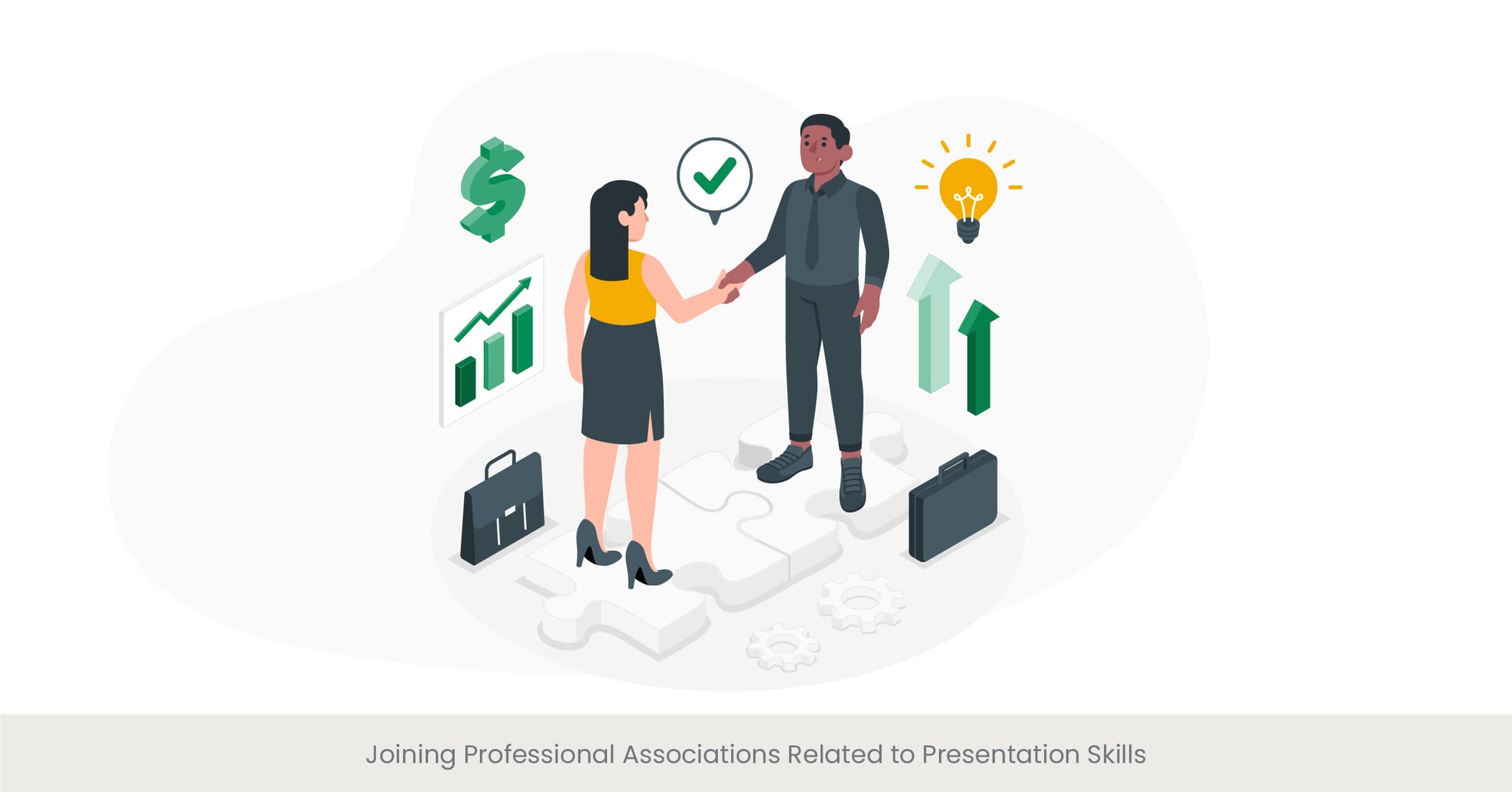
Introduction: Networking and Professional Growth
Joining professional associations related to presentation skills offers unique opportunities for networking, continuous learning, and career development. These associations bring together like-minded professionals who share a commitment to improving their communication abilities, providing a community that supports and enhances member skills through various resources and events.
Background: The Role of Professional Associations
Professional associations dedicated to presentation skills often provide a range of benefits, including access to exclusive workshops, seminars, and online resources. Members can take advantage of peer-reviewed journals, case studies, and newsletters that keep them updated on the latest trends and techniques in the field. Furthermore, these associations frequently host regional and national conferences that serve as excellent platforms for learning and networking.
Real-World Application: Benefits of Membership
The real-world benefits of membership in these associations are significant. For example, a project manager who joins an association like the National Speakers Association can access specialized training programs that enhance their presentation skills, particularly in persuasive communication and effective leadership. Another member might find mentoring opportunities within the association or organization that help them refine their style and approach to public speaking.
References and External Sources
Studies and reports validate the benefits of joining professional associations. Research published in the "Journal of Professional Networking" indicates that professionals who are active members of such associations are 25% more likely to advance in their careers. Additionally, feedback from a survey conducted by the Public Speaking Professionals of America shows that 80% of members experienced noticeable improvements in their presentation skills within the first year of membership.
Seeking Feedback and Constructive Criticism from Colleagues
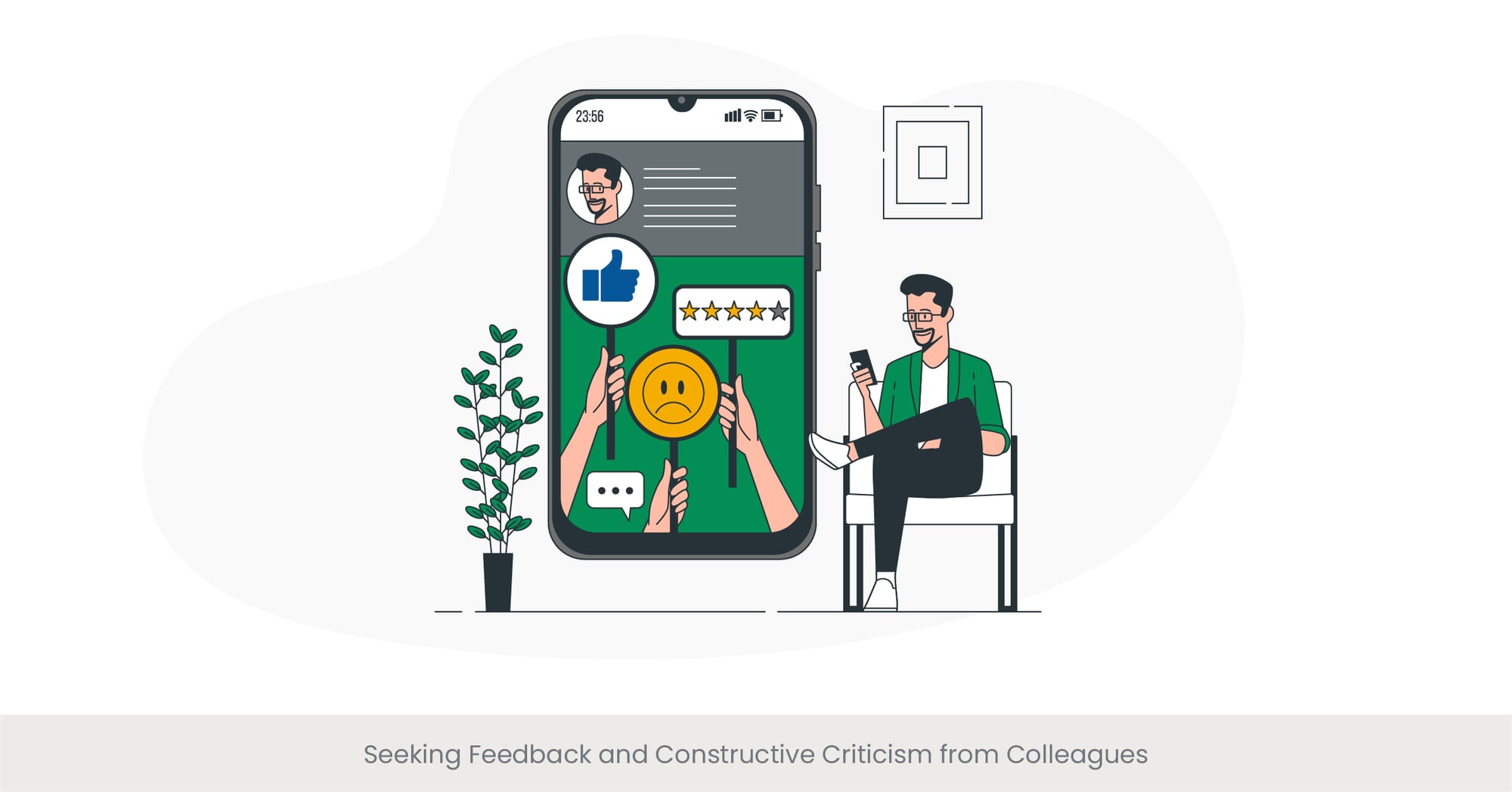
Introduction: The Importance of Constructive Feedback
Feedback is an invaluable tool for personal and professional growth, particularly in enhancing presentation skills. Seeking constructive criticism from colleagues not only helps pinpoint areas of improvement but also reinforces what is already working well. This practice fosters a culture of continuous learning and adaptation, which is essential for effective communication.
Background: Mechanisms of Feedback in Professional Settings
In professional settings, feedback can come through formal reviews, such as after a presentation, or informally during day-to-day interactions. Constructive criticism, when delivered effectively, provides specific, actionable advice rather than general comments. This can involve aspects of presentation such as the use of visual aids, clarity of message, engagement techniques, and overall delivery style.
Real-World Application: Feedback Driving Improvement
The practical benefits of seeking and applying feedback are evident in numerous professional scenarios. For example, a software developer might present a new product feature to their team and use the feedback to refine their delivery for a more significant stakeholder meeting. Similarly, a teacher might solicit feedback from peers on their educational presentations, leading to more engaging and informative sessions for students.
References and External Sources
Research supports the effectiveness of feedback in professional development. A study in the "Journal of Business Communication" found that professionals who regularly sought and incorporated feedback into their presentations saw a 40% increase in audience engagement. Additionally, a survey by the Communication Excellence Institute reported that 90% of employees who received regular, constructive feedback felt more confident in their presentation abilities.
Reflecting on Past Presentations and Identifying Areas for Improvement
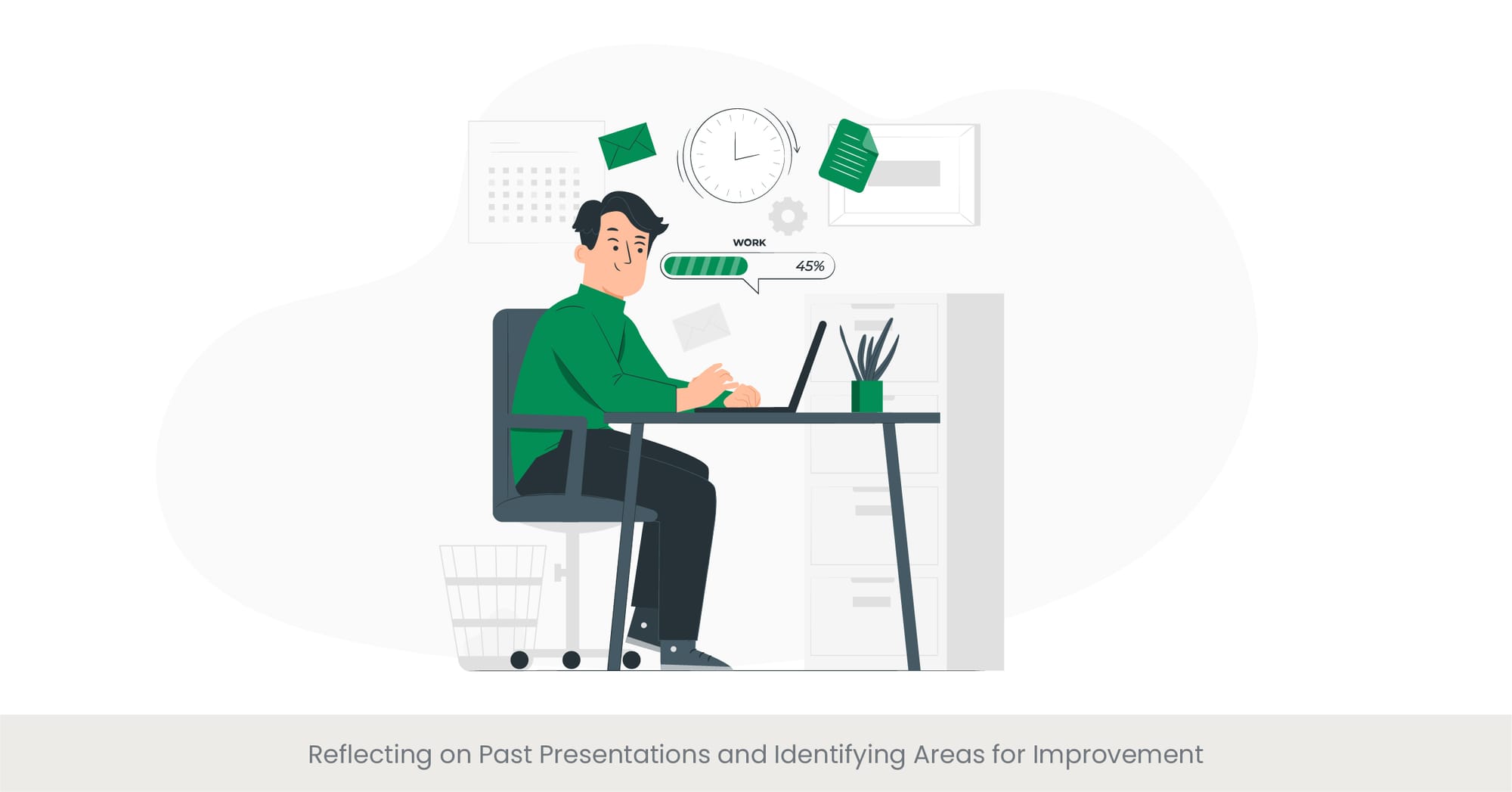
Introduction: The Power of Self-Reflection
Self-reflection is a critical component of personal story professional growth, particularly in the context of presentation skills. Reflecting on past presentations allows individuals to critically assess what worked well and what could be improved, providing a clear path for future development. This process of self-assessment is integral to becoming a more effective and engaging presenter.
Background: Strategies for Effective Reflection
Effective reflection involves more than just recalling past events. It includes a systematic review of presentation elements such as the audience's attention and engagement, the clarity of the message, use of visual aids, and overall delivery. Professionals might use video recordings of their presentations or feedback forms collected from the audience to aid in this analysis. This structured approach helps pinpoint specific areas that require attention and improvement.
Real-World Application: Continuous Improvement Through Reflection
Professionals across various fields use reflection to enhance their presentation skills continually. For instance, a healthcare executive might review their past seminar presentations to better engage with their peers in future talks. Another example is a marketing professional analyzing audience feedback from a product launch presentation to refine their message and delivery techniques for upcoming campaigns.
References and External Sources
The benefits of reflective practice are well-documented. According to research published in the "Journal of Reflective Practices," individuals who engage in regular reflection on their presentations improve their public speaking skills by up to 30%. Additionally, a study from the Professional Speakers Association found that speakers who routinely analyzed their performances experienced more rapid career advancements compared to those who did not.
Frequently Asked Questions
1. What are the 5 P's of an effective presentation?
The 5 P's of an effective presentation are Plan, Prepare, Practice, Present, and Post-evaluate. Each step is crucial for delivering a successful presentation, from initial planning and prepared, to post-presentation reflection.
2. What are the 7 P's of effective presentation?
The 7 P's of effective presentation expand on the basic five point one by adding 'Probe' and 'Ponder.' Probing involves asking questions to understand the audience better, and Pondering refers to reflecting on the feedback and outcomes to refine future presentations.
3. What are the 5 important items in effective presentation?
The five important items in an effective presentation include a clear objective, engaging content, strong visuals, confident delivery, and interactive elements to keep the audience engaged.
4. What are the 7 steps to make an effective presentation?
The seven steps to make an effective presentation are: Identify your audience, Define your message, Design your slides, Rehearse your delivery, Set up your speak early, Engage your audience, and Evaluate your performance.
5. What are the 5 P's of presentation skills?
The 5 P's of good presentation skills, are similar to those of an effective presentation: Planning, Preparation, Practice, Performance, and Post-analysis. These elements help ensure that presentation skills are continuously improved.
6. What are the steps to develop presentation skills?
Developing presentation skills involves identifying areas for improvement, seeking training and feedback, practicing regularly, utilizing various presentation tools specific methods and techniques, and reflecting on each presentation to refine skills.
7. What are the 5 essential skills for making a successful presentation?
The five essential skills for a successful presentation include effective planning, mastery of content, use of engaging visuals, ability to adapt to audience feedback, and strong delivery techniques.
8. What are 3 elements of strong presentation skills?
Three elements of strong presentation skills are clear communication, audience engagement, and effective use of technology and visual aids to deliver it.
9. How do you develop effective presentation skills?
Developing effective presentation skills involves continuous learning through training programs, applying feedback, practicing diverse techniques, and reflecting on past presentations to identify improvement areas.
10. What are the 5 P's of presentation skills?
The 5 P's of good presentation skills, reiterated for emphasis, are Planning, Preparation, Practice, Presentation, and Post-presentation review. These steps form a comprehensive approach to developing and refining presentation abilities.

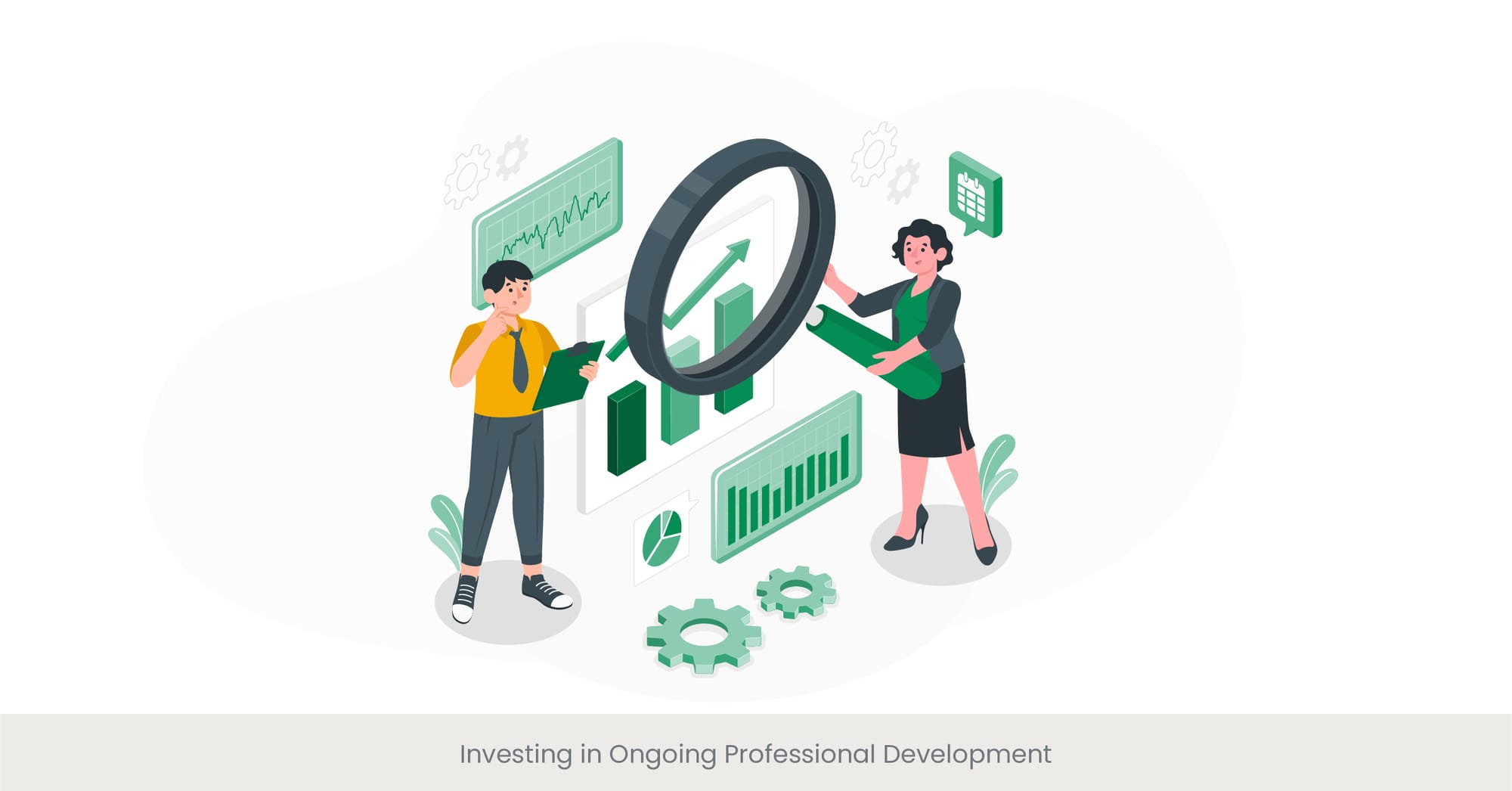

%20(1).jpg)
%20(1).jpg)
